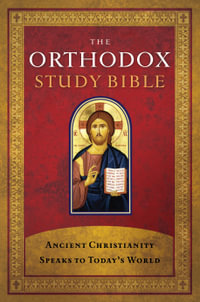The Virgin Birth According to Temple Christology builds an exegetical, theological, and Catholic case for understanding Jesus' incarnation as an act of divine temple construction. It attempts to explain that Jesus-the-temple had to have a virgin mother because of Jesus' unique status as the temple of God who was "made without human hands." This study answers the call to reintroduce the nexus between Christology and typology as they were originally bound together by theologians such as Athanasius of Alexandria. Unfortunately, for most of church history, Christology and typology have gone their separate ways. This divergence is so stark that the imagery and words of scripture have lost their voice in the context of Christian dogmatics. David H. Wenkel demonstrates that a typological study of biblical persons, events, and institutions can increase our understanding of Jesus, especially of his virginal conception. Thus, this study is a resource for a wide range of Christian traditions.
Industry Reviews
David H. Wenkel does a marvelous job exploring theophanies, (or better, Christophanies) while tracing the role of altars, the tabernacle, and the temple as temporary places of worship made by human hands. His in-depth exploration of Scripture, church fathers, and contemporary scholarship points to the divine work of the Holy Spirit who unites the eternal Son of God with a fully human nature. Wenkel writes the "virginal conception of Christ was an act of divine temple building in which the final and climactic temple of God's dwelling place was constructed." This book is extremely well-written and makes significant contributions both to typology and Christology. -- R. J. Gore, Erskine Theological Seminary This book will lead scholars, pastors, and lay readers to a deeper understanding and appreciation of the Christian doctrines of the incarnation and the Virgin Birth. Wenkel presents a fresh and creative analysis of important biblical and theological topics. I highly recommend this book. -- Benjamin Giffone, Hindustan Bible Institute & College, Chennai The virgin birth is something that has been proclaimed but not always eplained. Wenkel provides another reason why Jesus was conceived by the virgin Mary. While most say Mary is a type of temple who houses God, Wenkel points to Jesus as the heavenly temple who is constructed by the Holy Spirit. -- Patrick Schreiner, Midwestern Baptist Theological Seminary By tracing the biblical theme of the temple and Jesus being the heavenly temple of God, Wenkel shows how the concept of the virgin conception of Jesus is relevant to it and how such traditionally held view is necessary for Christians. He offers a new way to build a case for the necessity of the doctrine. -- Josaphat C. Tam, Evangel Seminary, Hong Kong This typological and exegetical-dogmatic presentation of the virginal conception and incarnation of Christ as a temple of God not made with human hands is both ecumenical and historically wide-ranging in its appeal to source documents and scholarly interlocutors. In addition, Wenkel is clear and explicit throughout the monograph about what he's doing and why: The Virgin Birth According to Temple Christology is a tour de force of succinct justifications for the respective theological disciplines and hermeneutical approaches that he methodically integrates while noting various commitments and acknowledging limitations. This is a rich and compelling resource that models a generous, constructive tone and rhetorical precision. It will reward the comprehensive reading of its incremental and syllogistic argument as well as a reader's mere selective consultation of certain parts. Individual sections or chapters could serve as stand-alone resources, especially as primers for the mid-level student of theology. -- Travis L. Myers, LCC International University






![NRSV Catholic Bible Gift Edition [Teal] : Holy Bible - Thomas Nelson](https://www.booktopia.com.au/covers/200/9780785230410/9912/nrsv-catholic-bible-gift-edition-teal-.jpg)

![NRSV Catholic Bible Gift Edition [White] : Holy Bible - Thomas Nelson](https://www.booktopia.com.au/covers/200/9780785230380/2211/nrsv-catholic-bible-gift-edition-white-.jpg)















![NIV Holy Bible Soft Touch Edition [Black] - Zondervan](https://www.booktopia.com.au/covers/200/9780310450474/null/niv-holy-bible-soft-touch-edition-black-.jpg)